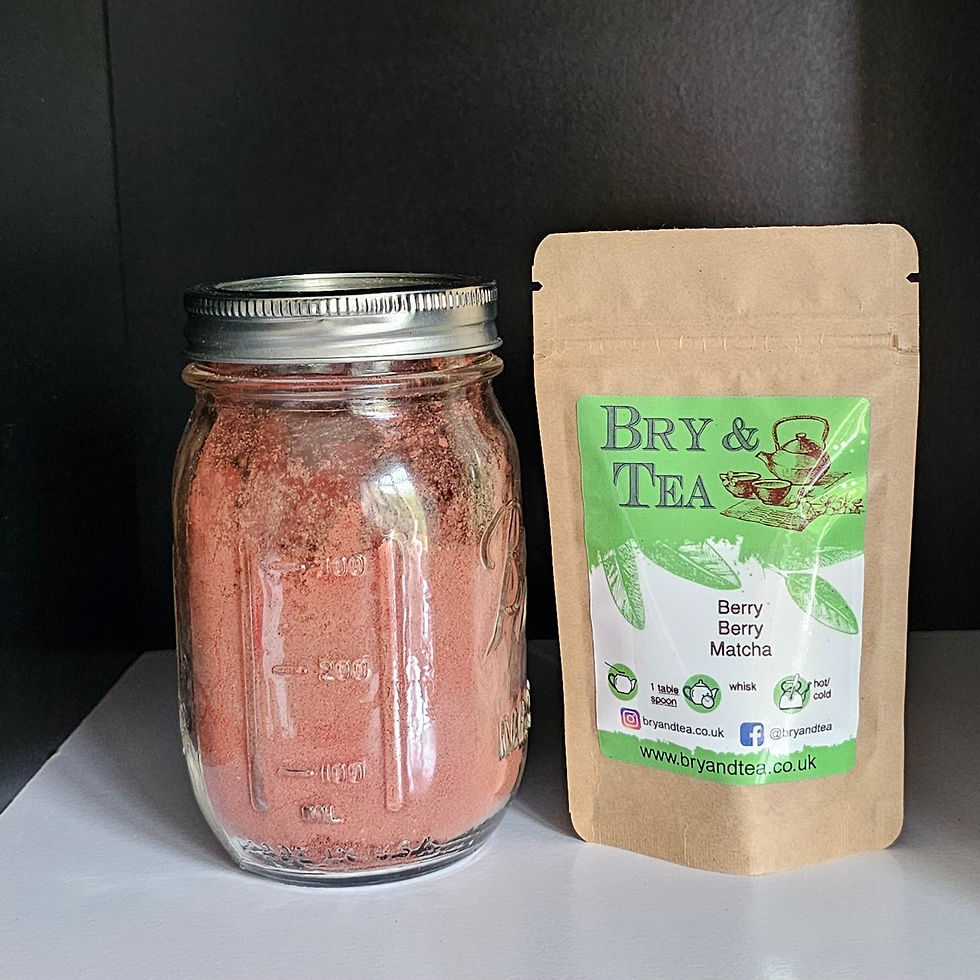Tea and Football?
- Bryony Sanderson
- Aug 9
- 3 min read
I've had writers block for a good few weeks trying to come up with a new blog that I think you guys would be interested in, and one that I am interested in enough to actually write! Then one of my friends suggested I write about the link I'm creating between two of the things I'm most passionate about - tea and women's football. After all, with the fantastic performance the England Lionesses put on winning the Euros this subject is popular with a lot of us and we're also a nation of tea drinkers.

Some of you who know me well will know that alongside running Bry and Tea I also play football and have been organising and coaching my own ladies training session for a couple of years. In fact Bry and Tea are the sponsor on our training kit. I'm also starting to coach one of my local ladies football teams this week which is exciting.
So how does tea come into it? I've been experimenting recently on using tea for fuel and hydration when playing football and other sports and it has given me a big energy boost, specifically when I use green tea with fruit. The caffeine in green tea is a slow release caffeine that gives you a sustained energy, unlike the caffeine in coffee and energy gels that give you a big spike of energy, followed inevitably by a big crash in energy.
Coffee | Matcha | Yerba Mate | |
Caffeine (per 100ml) | 50-100mg | 30-60mg | 20-40mg |
Type of energy | Fast Release | Slow Release | Moderate Release |
Affects | Quick spike & increased alertness | Sustained lift with endurance and focus | Alertness and fat oxidation (unlock fat stores) |

Matcha is the best green tea to use for slow release energy. It is made by shading the tea plants for several weeks before harvest to increase the chlorophyll and amino acid content, stripping the stems and veins out of leaves and the grinding the remaining leaf into a fine powder. Most will have heard of a matcha latte where it is whisked into milk but the traditional use of matcha is drinking it whisked into hot water. If however, you whisk it into cold water the taste is sweeter and less intense but the caffeine content is the same.
I personally enjoy my matcha mixed with raspberry, strawberry and blackberry powder in cold water, I can simply add it to a sports bottle and shake it. If I'm organised enough I make it in advance and put it in the fridge to give the tea time to infuse. Some of my friends have also tried this mix for playing football and I've had a good response.
I will have some small packets of this mix (6 servings) available to buy on the market stalls starting tomorrow if anyone would like to try it out and give me some feedback.

There is also another tea I am experimenting with for energy and this is Yerba Mate, this has a slightly lower caffeine content than Matcha but has a moderate energy release rather than slow like Matcha or fast like coffee. The most interesting thing about using Mate to fuel and hydrate whilst exercising is that Mate encourages fat oxidation which means that it will help your body unlock fat stores and burn them for energy. Most of the time when we exercise (ladies specifically) we struggle to use our fat stores to create energy, our body likes to hang on to these and simply demands more carbs as these are easier to burn! Which is rather unfortunate as most of us exercise because we would rather like to reduce these fat stores thank you very much!
Watch this space for the release of a Mate energy tea - I have a loose leaf tea version for brewing in hot water that I will bring in small packets to buy on the market stall for some feedback.
I'm working on a cold water powdered version that can be made in a sports bottle like the matcha as some may not necessarily want a hot cup of tea before a game or heading to the gym.
As soon as I have had some feedback from customers using the teas for sport and exercise I will get these on the website for those of you who may live a little distance from my corner of Yorkshire. Watch this space... and social media for updates...







Comments